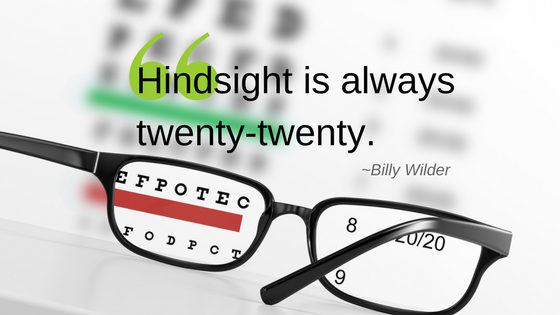What should you be looking for in your next salesperson? And if you are looking for a sales job, what should you be working on to attract top employers?
Sales managers ask this question when they realize they need to recruit. Business owners ask it when they want to hire their first salesperson. Salespeople (and non-salespeople) ask this (ie: what are companies looking for when they hire salespeople?) when they are unhappy or unemployed.
If you are a salesperson reading this and on the job hunt, the things a company should look for are the things you should be doing to attract the companies you want to be a part of. Treat your job hunt just as you would treat your sales process. Even if you aren’t hunting for a job, these things will help you prospect and sell better. (And you’ll never have to hunt for a job again, because they will come to you.)
First, if you are looking to hire a salesperson, you will need a profile that has the criteria of how your best salesperson thinks and behaves in order to be successful in the role and a good culture fit with your company.
Other things to look for might be if they have an online personal presence and following. What are they sharing, writing about, or passionate about? Do people recommend them online and interact with them? Are they responsive and consistent?
If you are looking for a new job, or considering one, you should do the same thing. What criteria do you need? What companies are a good example? What do they ‘look’ like online?

What to look for during the hiring process.
What to look for is going to depend on the profile of your ideal salesperson in the specific role you need them to fill. That is too many variables to cover here, so here are a few of the fundamentals:
- Do they have the will to succeed in sales?
What kind of outlook do they have? What motivates them? Do they have dreams, goals, and plans to reach them? How committed are they to those? Do they take responsibility for their outcomes, or find excuses? What was the last new thing they learned and how did they do it? How do they prepare? How do they react to feedback? Do they do what they say when they said they would? - Do they have enough of the right mindsets and beliefs to do what is necessary?
Do they get flustered easily? Do they need people to know how smart they are? Do they need people to like them? What are their attitudes about money? What was the most expensive thing they ever bought? How did they make that decision? How do they react when they are told no? - Where do their current selling competencies lie?
This will vary according to role of course. Are they better at hunting, relationship building, selling consultatively, qualifying, presenting, closing? Can they execute on a sales process and sell on value? Are they tech and CRM savvy and will they use social to start conversations? Ideally, each person you interview has been objectively assessed with a sales specific tool to remove the bias to these answers. That will then help you know exactly which questions to ask in the interview process.
What should you be asking during the interview process?
How they perform during the interview is an indication of how they will engage with your customers and team. Here is how one VP of Sales conducted interviews.
In addition to the questions already mentioned, here are 10 more to consider:
- Do you like people? Which is more important, someone being happy with you, or getting the deal done?
- How do you handle people who you tell you to call back?
- How do you handle it when the buyer’s first question is price?
- What do you do when buyers ask for a discount?
- What happens after you have made a sale? How often do you stay in touch with customers?
- What is your approach to asking for referrals and introductions?
- How would you reach a decision maker if your contact doesn’t want to introduce you?
- What is does current prospecting strategy look like for your job hunt?
- What was the last sales book you read? What did you apply from it?
- How would they ask sensitive and uncomfortable questions?
Whether or not your next sales hire will be successful can be predicted, to a degree. Variables like your industry, buyer, life-cycle stage of your business, the ideal salesperson profile, how you recruit, hire, on-board, and the development program are all examples. Click here for a free trial of the scientific sales candidate assessment for your next hire to get started on the right foot.
Hindsight is always 20/20 after you hire, and even if you already feel the sting of an unsuccessful hire, the hiring cost of an unsuccessful salesperson is probably far greater than you think.
Click here to answer 15 questions (less than 5 minutes) instantly get a calculation of your total cost of hiring mistakes including your cost of recruitment, development and lost business.






